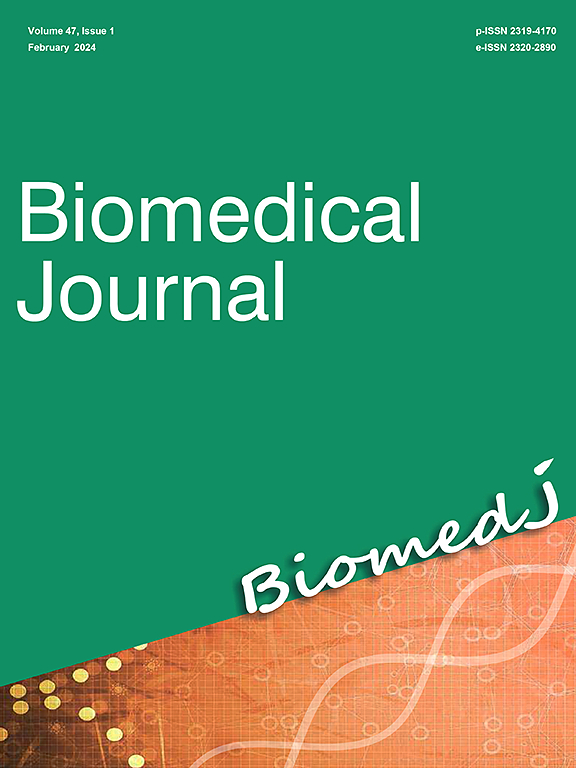LncRNAs and asymmetric cell division: The epigenetic mechanisms
IF 4.1
3区 医学
Q2 BIOCHEMISTRY & MOLECULAR BIOLOGY
引用次数: 0
Abstract
Asymmetric cell division (ACD) plays a pivotal role in development, tissue homeostasis, and stem cell maintenance. Emerging evidence suggests that long non-coding RNAs (lncRNAs) are key regulators of ACD, orchestrating the intricate molecular machinery that governs cell fate determination. This review summarizes current literature to elucidate the diverse roles of lncRNAs in modulating ACD across various biological contexts. The regulatory mechanisms of asymmetric cell division mediated by lncRNAs, including their interactions with protein effectors, epigenetic regulation, and subcellular localization are explored. Additionally, we discuss the implications of dysregulated lncRNAs in mediating ACD that lead to tumorigenesis. By integrating findings from diverse experimental models and cell types, this review provides insights into the multifaceted roles of lncRNAs in governing asymmetric cell division, shedding light on fundamental biological processes. Further research in this area may lead to the development of novel therapies targeting dysregulated lncRNAs to restore proper cell division and function. The knowledge of lncRNAs regulating ACD could potentially revolutionize the field of regenerative medicine and cancer therapy by targeting specific lncRNAs involved in ACD. By unraveling the complex interactions between lncRNAs and cellular processes, the potential novel opportunities for precision medicine approaches may be uncovered.
LncRNA 与不对称细胞分裂:表观遗传机制。
不对称细胞分裂(ACD)在发育、组织稳态和干细胞维持中起着关键作用。新近的证据表明,长非编码RNA(lncRNA)是ACD的关键调控因子,协调着决定细胞命运的复杂分子机制。这篇综述总结了目前的文献,以阐明 lncRNA 在调节各种生物背景下的非对称分裂过程中发挥的不同作用。我们探讨了由 lncRNAs 介导的不对称细胞分裂的调控机制,包括它们与蛋白质效应因子的相互作用、表观遗传调控和亚细胞定位。此外,我们还讨论了调控失调的 lncRNA 在介导 ACD 并导致肿瘤发生方面的影响。通过整合不同实验模型和细胞类型的研究结果,这篇综述深入探讨了 lncRNA 在调控不对称细胞分裂中的多方面作用,揭示了基本的生物学过程。该领域的进一步研究可能会开发出针对失调的 lncRNA 的新型疗法,以恢复正常的细胞分裂和功能。通过靶向参与ACD的特定lncRNAs,对调控ACD的lncRNAs的了解有可能彻底改变再生医学和癌症治疗领域。通过揭示 lncRNA 与细胞过程之间复杂的相互作用,可能会为精准医疗方法带来潜在的新机遇。
本文章由计算机程序翻译,如有差异,请以英文原文为准。
求助全文
约1分钟内获得全文
求助全文
来源期刊

Biomedical Journal
Medicine-General Medicine
CiteScore
11.60
自引率
1.80%
发文量
128
审稿时长
42 days
期刊介绍:
Biomedical Journal publishes 6 peer-reviewed issues per year in all fields of clinical and biomedical sciences for an internationally diverse authorship. Unlike most open access journals, which are free to readers but not authors, Biomedical Journal does not charge for subscription, submission, processing or publication of manuscripts, nor for color reproduction of photographs.
Clinical studies, accounts of clinical trials, biomarker studies, and characterization of human pathogens are within the scope of the journal, as well as basic studies in model species such as Escherichia coli, Caenorhabditis elegans, Drosophila melanogaster, and Mus musculus revealing the function of molecules, cells, and tissues relevant for human health. However, articles on other species can be published if they contribute to our understanding of basic mechanisms of biology.
A highly-cited international editorial board assures timely publication of manuscripts. Reviews on recent progress in biomedical sciences are commissioned by the editors.
 求助内容:
求助内容: 应助结果提醒方式:
应助结果提醒方式:


